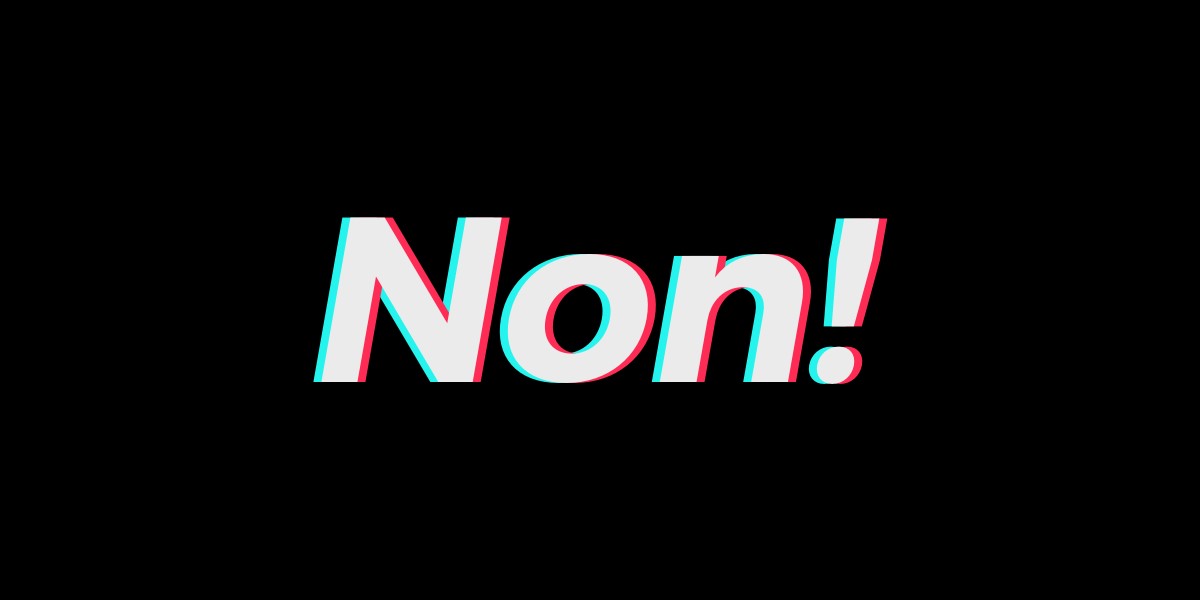France Bans All Recreational Apps – Including TikTok – From Government Devices

The government of France has banned TikTok – and all other recreational apps – from phones issued to its employees.
The nation's ministère de la transformation et de la fonction publiques last Friday issued a statement [PDF] announcing the policy, which minister of transformation and public service Stanislas Guerini justified on grounds that no recreational apps have sufficiently robust security for them to be deployed on government-owned devices.
The minister warned that the apps represent a risk to data stored by government agencies and their employees.
Guerini stated that some exceptions will be allowed, but only for apps needed for official communication.
The announcement doesn't include a date for removing apps from government devices.
Several nations have already banned TikTok from government-owned devices on grounds that the app's Chinese staffers can potentially see user data.
TikTok CEO Shou Zi Chew was last week grilled by the US House Committee on Energy and Commerce. It didn't go well, with several members saying the app should be banned outright – not just from government devices – because TikTok is linked to the Chinese Communist Party.
- Utah outlaws kids' social media addiction, sets digital curfew
- TikTok cannot be considered a private company, says Australian report
- UK.gov bans TikTok from its devices as a 'precaution' over spying fears
- Beijing's done its sums and found a billion netizens watching short video services
Shou told lawmakers that TikTok's "Project Texas" efforts to ensure that non-Chinese users' data cannot be viewed within China would safeguard individual and US security. Committee members were not persuaded, and a bi-partisan consensus emerged to sanction TikTok.
On Sunday House speaker Kevin McCarthy (R-CA) signaled a law would soon be tabled to crack down on TikTok.
It's very concerning that the CEO of TikTok can't be honest and admit what we already know to be true—China has access to TikTok user data.
The House will be moving forward with legislation to protect Americans from the technological tentacles of the Chinese Communist Party.
— Kevin McCarthy (@SpeakerMcCarthy) March 26, 2023
It remains unclear if that bill will force a sale of TikTok's US operations, or ban the app.
A forced sale would be hard to execute. China's government has pointed out that TikTok's owner, ByteDance, could not do a deal without government approval. And with China's Foreign Ministry characterizing the US government's attitude to TikTok as a "xenophobic witch hunt" it's hard to see Beijing making it easy for a US entity to take control of the social app. ®
From Chip War To Cloud War: The Next Frontier In Global Tech Competition
The global chip war, characterized by intense competition among nations and corporations for supremacy in semiconductor ... Read more
The High Stakes Of Tech Regulation: Security Risks And Market Dynamics
The influence of tech giants in the global economy continues to grow, raising crucial questions about how to balance sec... Read more
The Tyranny Of Instagram Interiors: Why It's Time To Break Free From Algorithm-Driven Aesthetics
Instagram has become a dominant force in shaping interior design trends, offering a seemingly endless stream of inspirat... Read more
The Data Crunch In AI: Strategies For Sustainability
Exploring solutions to the imminent exhaustion of internet data for AI training.As the artificial intelligence (AI) indu... Read more
Google Abandons Four-Year Effort To Remove Cookies From Chrome Browser
After four years of dedicated effort, Google has decided to abandon its plan to remove third-party cookies from its Chro... Read more
LinkedIn Embraces AI And Gamification To Drive User Engagement And Revenue
In an effort to tackle slowing revenue growth and enhance user engagement, LinkedIn is turning to artificial intelligenc... Read more

